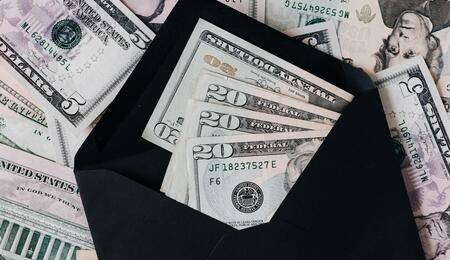What Impacts Cannabis Taxes?

You might think that the more cannabis is sold in legal dispensaries, the more tax earnings are generated. While that sounds logical and more retail does mean more money for everybody, including cannabis businesses and tax collectors. Still, it's important to note that every year, legal cannabis businesses are subject to excess taxing, paying much more than other non-cannabis companies are paying.
Analysis from the research firm Whitney Economics shows that marijuana companies paid over $1.8 billion in federal taxes in 2022, much more compared to other businesses, all due to the U.S. tax treatment of the MJ sector. This excess is forecasted to climb to $2.1 billion in 2023, according to Whitney.
The excess payments result from Section 280E of the federal Internal Revenue Code, which basically penalizes those who work with controlled substances by collecting more significant sums of tax money.
Section 280E prevents companies considered traffickers of Schedule I and II controlled substances from deducting business expenses like other businesses. After the math is done, applying this federal code results in federal income tax liability calculated based on gross income instead of net income.
In other words, Section 280E creates "phantom income." The tax is levied on income that was never received. A lot of cannabis businesses owe millions under the 280E code.
According to MJBizDaily, between 2020 and 2030, the U.S. marijuana industry taxes paid are estimated to reach around $65.3 billion, added the impact of 280E. The forecast is based on a total revenue forecast of $720.2 billion earned by plant-touching cannabis business over that period.
If Section 280E were abolished, the total tax forecast would be almost half that sum, or something around $30 billion over the same period. That is enough huge sums of money to overshadow the premise earlier that the more weed is sold, the more tax money is collected.
"The tax burden is so heavy that only 24.4% of cannabis operators surveyed indicated that they are profitable," Whitney Economics wrote in a news release statement. "This is down from 42% the year prior," the statement says.
Beau Whitney, chief economist at Whitney Economics, said, "The cannabis industry is under extreme economic distress and the current regulatory and taxation environment is untenable, even in the short term." The statement further adds that several state markets are teetering on the brink of systemic collapse, and only tax reform may work as a solution that aids the cannabis sector.
And who created Section 280E? Suffice it to say that this specific federal tax code was born of politics, at the height of the war on drugs, in 1982. Later, when California legalized medical marijuana in 1996, the war found a friend in the Internal Revenue Service's audit program and the enforcement of Section 280E.
Since Colorado became the first legal state, the IRS has continually trained revenue agents on how to collect tax from cannabis businesses by applying Section 280E. Tax agents have been trained in the finer details, and the agency is continually upgrading its audit procedures and staff training materials. It all indicates that there are meticulously planned ways for the government to collect considerable sums of money and use federal law to its fullest extent to maximize tax-collecting efforts.
Is it possible to remove Section 280E? Section 280E is universally dreaded, at least among those in the cannabis industry. Currently, at least one legal initiative aims to remove it.
New Jersey legislators want to decouple the state's tax law from Section 280E. If the legislation is approved, it will permit licensed cannabis operators to deduct ordinary business expenses on their state tax returns that they are prohibited from deducting on their federal tax returns. It is understood that this bill has been sent to Governor Phil Murphy to potentially sign into law. If it's successful, it may set a precedent for other states to also implement similar measures that counter 280E.









